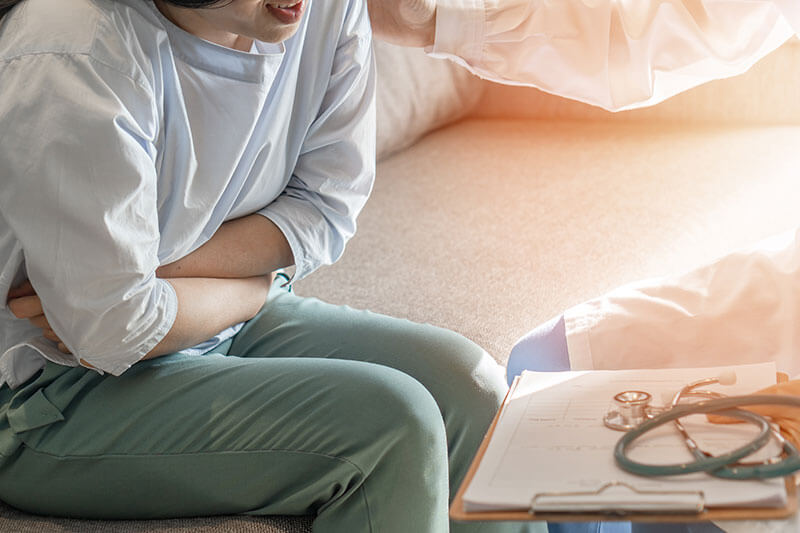Dustin Huff is Dr. Hamilton’s Physician Assistant. He assists Dr. Hamilton in surgery and also sees patients in the clinic before and after surgery.
One of the side effects of having bariatric surgery can be gallstones. The liver produces bile to help in breaking down fat and cholesterol. It stores this bile in the gallbladder which can then release it when you eat. The more fat you eat, the more bile you need to help break it down during digestion.
Gallbladders can become a problem in 3 ways:
- You can develop a gallstone, which is a hardened deposit of bile – this may or may not cause pain and nausea
- You can develop sludge in your gallbladder, which is thickened bile, which makes it harder for the body to excrete when you need it, making your nauseated
- Biliary dyskinesia is a condition where your gallbladder is no longer as flexible as it was and loses its ability to squeeze out the bile
If you develop any of these conditions, you may develop nausea and pain in the upper right side of your abdomen. It usually occurs at the very end of a meal or about 10 – 15 minutes after a meal.
If the surgeon suspects you are having trouble with your gallbladder, he will usually order an ultrasound of the gallbladder to look for stones or sludge. If none are seen, he may order a heptatobiliary scan to see if the gallbladder is no longer able to squeeze out the bile. About 5 % of patients who have bariatric surgery develop gall stones or gallbladder problems in the first 12 – 24 months after surgery. This usually occurs during the most rapid weight loss phase after surgery as the body is breaking down fatty tissue. This causes the liver to secrete a lot of extra cholesterol into the bile which can then cause gallstones. To prevent gallstones, it is important to keep yourself hydrated, and avoid fatty, fried food. This will cause less stress on the gallbladder as you are breaking down body fat.
Kidney stones happen very rarely, and patients are usually seen by their Primary Care Provider or a Urologist for treatment. Most stones are made up of calcium oxalate. As your body is metabolizing fat, it excretes calcium along with it, so you are losing calcium during weight loss. In order to make up for the lost calcium, your body will dissolve bone in order to get more calcium if you are not taking enough in. This is why taking calcium citrate tablets is so important to our patients after surgery. Your blood work may not show a low calcium when the body is leaching it out of the bones. The only way to truly know you are getting enough calcium is to get a bone density scan. The nurse practitioners can order that for you. It is a very quick and easy test to ensure your bones are strong.
Other questions:
I think I am dehydrated: symptoms of dehydration are dizziness, nausea, and darkened urine. If you think you are dehydrated, call the office. We have an outpatient infusion clinic where we can give you some extra IV fluids to get you hydrated again.
Why am I having leg cramps: It can be from dehydration, and or it can be from a deficiency in some vitamins or minerals. You can try a small magnesium supplement daily to see if it helps. If you have numbness or tinging in your feet, please call the office so we can check for vitamin B deficiency.
I feel constipated, what can I take: Not getting enough fluids can cause constipation after bariatric surgery. Make sure you are getting 64 ounces a day of water or clear fluids. Pain medication also can slow down the bowels. We recommend stirring a spoonful of Miralax into your fluids daily, or using a couple of tablespoons of milk of magnesia when this occurs. If you are really constipated, you can use a Dulcolax or Glycerin suppository. Please don’t take a strong laxative. Supplementing your diet with flax seeds or magnesium can also help. Do not take a fiber supplement until you are taking in 65 ounces of fluid every day consistently.









